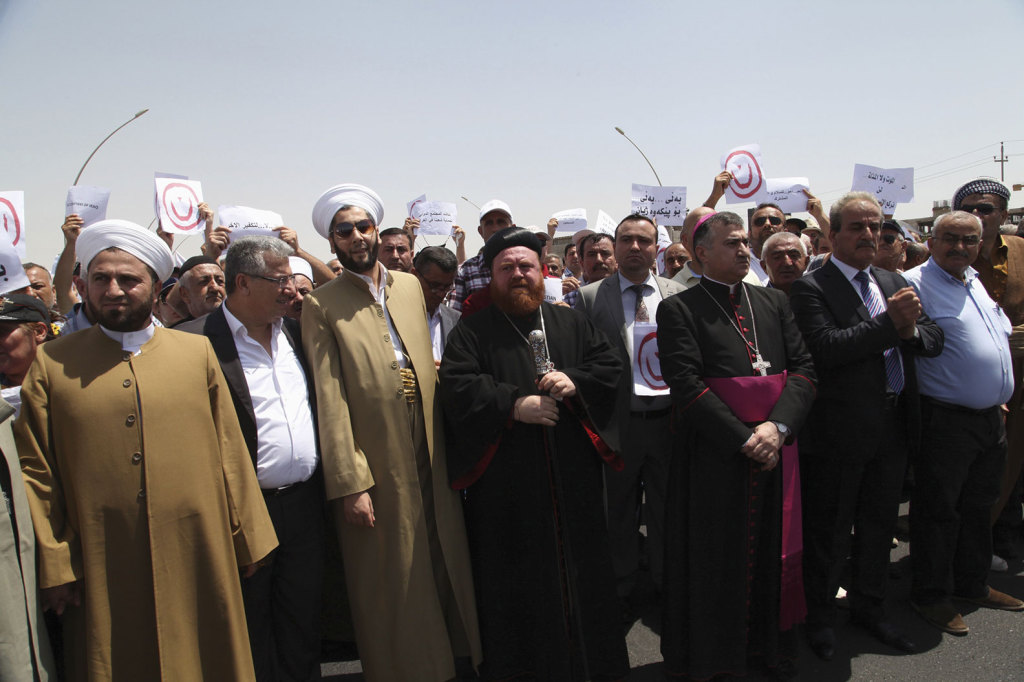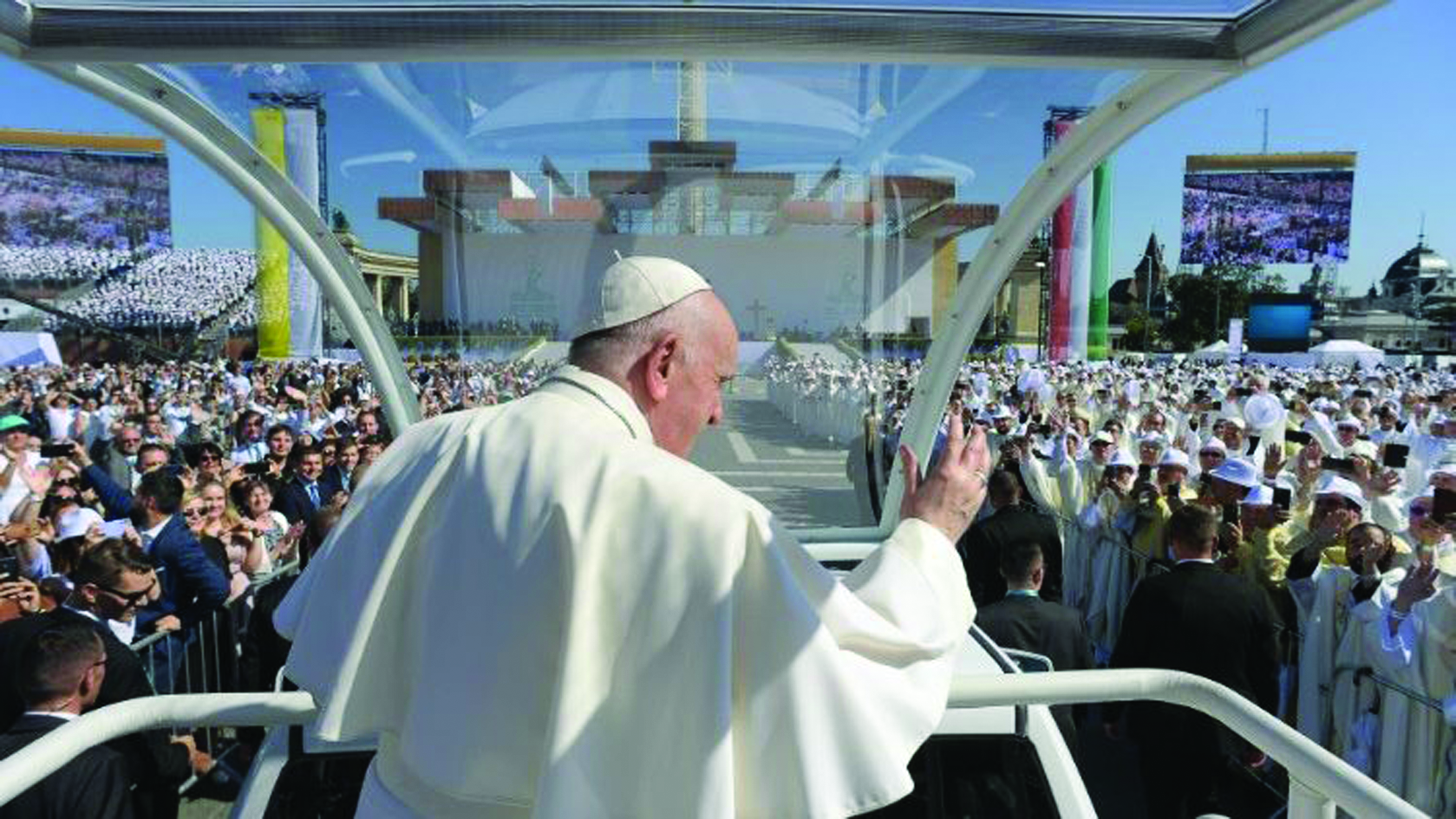Inside the Vatican speaks with Professor Riccardo Redaelli, who teaches at Sacro Cuore University in Milan.
Professor, we cannot understand the conflicts in the Middle East without speaking about the split between Sunnis and Shiites. What do we need to know about this?
Prof. Riccardo Redaelli: In the Islamic world, there are at least two great divisions, both strengthened by politics as practiced in the Gulf states, particularly Saudi Arabia. The first is the traditional split between Sunni and Shiite Muslims. The Shiites are a minority in the Muslim world, around 10%, but in the Gulf region they make up 50% of the population. They are dominant in Iran, Iraq, Bahrain, Lebanon and Syria.
But there is also a contrast — geopolitical, not religious — between Saudi Arabia and Iran, for supremacy in the Gulf region; this has brought about polarization and politicization. This means that the traditional religious differences have become a contrast of a political nature, and has given rise to a very strong and violent political radicalism. This phenomenon has divided communities that, in the past, had learned to get along somehow, as was the case in Iraq and Syria.
The second division can be found within the Sunni world, and it came about forcefully with the so-called “Arab Spring.” It was the split between the so-called “Political Islam” of the Muslim Brotherhood, and the Salafi Movement backed by Saudi Arabia. Both of these are radical movements, very harsh in their treatment of religious minorities, with the difference that political Islam seeks to create Islamic republics, while Salafis are more dogmatic, but politically more neutral. This great divide has been seen, for example, in Egypt with the Muslim Brotherhood. It is also to be found in Libya. To sum it up, the monarchies of the Gulf use their money and influence to combat political Islam. They do so by using the Salafis, who are even more radical, fundamentalist and dogmatic.

Demonstrators from various religions gather during a July 24 protest in Irbil, Iraq, against militants of the Islamic State.
In the Middle East we find world powers (United States, Great Britain, France, Russia) and regional powers (Iran, Saudi Arabia, Turkey, Israel, Qatar, etc.) What are these countries’ political, economic and religious intentions?
Redaelli: The scenario is complicated, and often the actions of the various international and regional “actors” appear to be barely coherent. The United States, as the only world superpower after the end of the Cold War, has invested enormously in the Middle East, at the political, economic and military level. But the results have been catastrophic. They can be seen in Afghanistan, in Iraq, but also in U.S. policy towards Iran. Today America is weaker and more fragile, but above all its strategy is confused. America’s number one enemy is Iran, but today we see that the worst danger is coming not from Shiite but from Sunni Islam. And ironically, Iran would be a natural ally for the West in the fight against Sunni-based jihadist terrorism. All this, while our allies in the Gulf, namely Saudi Arabia and Qatar, are allied with our worst enemies. To sum it up, it is very confusing.
And what about Israel?
Redaelli: First of all, it must be said that today’s Israel is not the Israel of 30-40 years ago, that is, the country of Ashkenazi immigration with a secular, almost socialist vision. Today, politically, Israel is much more right-wing, and under the strong influence of religious and xenophobic parties. Israel has moved to affirm its military and economic superiority. The more the Arab world is divided, the more Israel feels secure. Israel must choose: does it want peace by returning the occupied territories, or does it want to be a violent state that occupies the territories, repressing or expelling the Palestinian population? Israel cannot present itself as a democracy without returning the territories it currently occupies.
In Europe we hold the ideals of a multi-ethnic and multi-religious society. How is it that so many young people in Europe feel the call to radical Islam?
Redaelli: This is a very important problem. I wanted to call to mind Cardinal Scola’s excellent book, Let’s Not Forget God. The reality is that, in Europe, we are forgetting God, and we have nearly repudiated our own religious origins, as if they were something to be ashamed of. We need go no further back than to Europe’s hesitation in speaking out on the Christian minorities being massacred in the past few years in the Middle East. In Great Britain in particular, the idea of multiculturalism has been affirmed. This concept has positive value if it centers on the presence of, and capability for, dialogue and comparison among different religions. But in Great Britain it didn’t interfere inside single religious groups: every group did whatever it wanted.
It would seem a good thing, the full affirmation of liberty…
Redaelli: But this principle of “see not, interfere not” has allowed for the growth of radical Islamic preachers, who had great influence on immigrants, especially the second and third generations. There are third-generation Pakistanis who don’t feel Pakistani anymore, but who don’t feel English, either. This identity crisis makes them easy prey to radical propaganda. We instead have been very slow to understand the danger in the radicalization of certain groups in our society, and we are even slower at combatting this phenomenon.
We need to understand that the Islamic State, and the people who make it up, are post-modern. These terrorist groups have a very strong capability to publicize their mission: their presence on the Internet is massive, and they are able to attract many people because their message is simple and effective.
When we speak of the tragedy faced by the Middle Eastern populations, we cannot help but mention the tragic fate of Christians. Why is it that Christians, who have lived in those areas since apostolic times, are the first victims of Islamic terrorism?
Redaelli: Christians are a fragile minority, living among Sunni and Shiite majority groups. The Christians, present there before Islam came into being, are the least sectarian community: they aren’t armed as other groups are, and they are an “across the board” group, because they maintain dialogue with everyone else. When a society is crumbling, all non-sectarian groups are hit. Lately we also have jihadist groups and the Islamic State that don’t tolerate variety, or any cultural or religious differences: they want a fake Middle East that exists only for people like them. For this reason, Christians are being attacked, and they are an easy target because they aren’t armed.

Members of the Yezidi religious minority who fled from violence in Mosul, Iraq, receive aid August 21 in Dohuk Province, in the northern part of the country. The Franciscan custos of the Holy Land said force alone cannot stop “religious cleansing” in the Middle East.
The Archbishop of Mosul, Msgr. Emil Nona, is very clear in his opinions regarding the current situation. First of all, he emphasizes that the fundamentalist fighters “can’t be stopped without war or a freezing of funds” and he also warns us Westerners that, in his opinion, we don’t understand Islam: “[The fundamentalists] are a danger for everyone, and even more so for you Westerners. There will come a time when you will regret your politics. These groups’ borders are all over the world: their objective is to convert by the sword or murder everyone else.” If someone who lives within the Muslim world and knows it well says this, shouldn’t we be seriously worried?
Redaelli: First of all, the bishop of Mosul lives in a catastrophic situation and he is quite right. The West has, for a long time, underestimated the problem: we have left the Christian communities alone and we have hesitated to defend them, also so as not to be accused of colonialism (but that is crazy, since Christians have been there for two thousand years!). DefendingMiddle Eastern Christians means defending the indisputable rights of this community: the right to live where they have always lived, and the right to religious liberty.
For years we have pretended not to see that our allies, such as Saudi Arabia, Qatar and Turkey, sustain dangerous extremist fundamentalist movements. It is obvious that these movements don’t act merely within national borders: their ambition is to convert the world to Islam. But it must also be said that these movements are in the minority in Islam, and for the moment they are fighting mainly against other Muslims (secularists, moderates). But this gangrene will spread, if it is not stopped. This is why we must strike harshly; we have already lost a lot of time. At the same time, we cannot forget that there are many European citizens fighting for the Islamic State: these people will bring jihad to Europe, when they return to their home countries. We must pay close attention to this phenomenon, which must be fought, but the answer to it all cannot be merely repression.
At the same time, we must face the fact that, up to now, Europe has repudiated its own Christian roots. We must not be afraid of these roots. This doesn’t mean that we must necessarily impose Christianity, but neither must we hide the fact that Europe was born as a Christian continent.







Facebook Comments